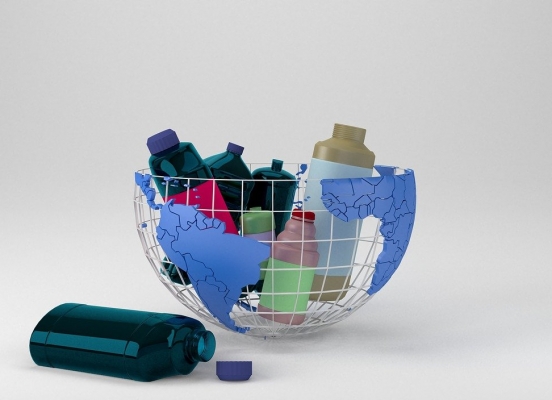Plastic Waste
Medicines, detergents, textiles, and plastics. Just a few of the thousands of finished products in which petrochemicals are a key ingredient – and which an increasing number of people around the world enjoy and need. Shell produces base chemicals (ethylene, propylene, and aromatics), which are the raw materials for these finished products.
Plastics provide important health, safety, and sustainability benefits. They help to improve living standards, hygiene, and nutrition around the world. They are used widely in healthcare, construction, transport, electronics, agriculture, and sport. Plastics are often associated with disposable and throwaway packaging. But many products have different and long-term uses, like pipes, window frames, sports equipment, and roofing, for example.
Most use fewer resources and have a lower carbon footprint than the glass, paper, and metal they have replaced. For instance, efficient plastic insulation and lightweight plastic parts in cars and planes save energy and avoid CO2 emissions. And plastics are integral in the construction of renewable energy, such as wind turbines and solar panels.
A waste issue
Shell is concerned about the global plastic waste issue. In some places, waste management infrastructure and traditional recycling don’t exist, or plastic waste is not managed appropriately. As a result, plastic waste can end up as litter.
Plastics don’t belong in our oceans, rivers, or landscapes. They belong in our homes, hospitals, schools, and businesses, delivering benefits to hundreds of millions of people around the world every day.
All of society – industry, governments, and consumers need to work together to solve this.
Shell wants to play an active role in finding lasting solutions to this challenge.
We are a leading member of the new Alliance To End Plastic Waste. This is an alliance of global companies including chemicals and plastic manufacturers, consumer goods companies, and waste management companies, along with the World Business Council for Sustainable Development. It has committed $1.5 billion over the next five years to end plastic waste in the environment.
Infrastructure: Catalyse investment in enhanced waste infrastructure to prevent plastic from reaching the environment.
Innovation: Innovate new sustainable materials, designs, technologies, and business models based on sound science and economics.
Education: Engage and collaborate with governments, industry, and consumers to drive effective solutions.
Clean-up: Develop solutions to address and clean up areas of existing plastic waste in the environment.
Read more about the alliance on its website: www.endplasticwaste.org
Using plastic waste as a chemical feedstock
Shell is also exploring process technologies that could transform post-use plastic into useful liquids that could be used as a source of energy, as chemicals, or as new products.
Shell is using a liquid feedstock made from plastic waste in its chemical plant in Norco, Louisiana, USA to make a range of chemicals. The liquid, supplied by Nexus Fuels, is made from hard-to-recycle plastic waste via a specialized heating technique called pyrolysis.
Our ambition is to use one million tonnes of plastic waste a year in our global chemical plants by 2025. We will work with multiple companies who collect and transform plastic waste in order to scale this solution to industrial and profitable quantities across our chemical plants in Asia, Europe, and North America.
To know more, please check Shell

